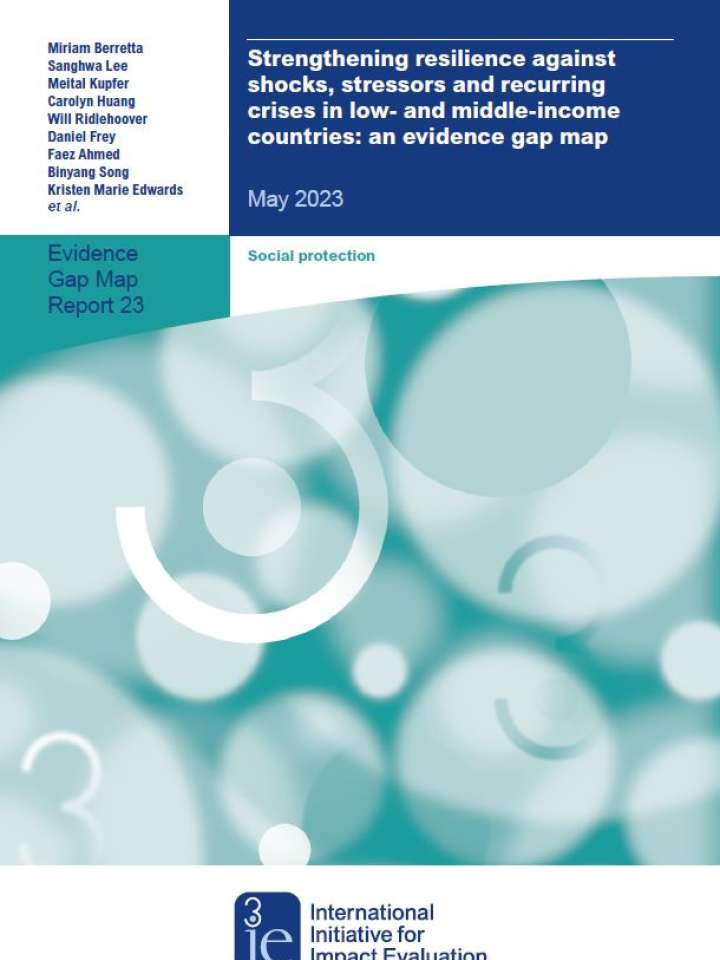Strengthening resilience against shocks, stressors and recurring crises in low- and middle-income countries: an evidence gap map
This evidence gap map (EGM) provides an up-to-date picture of the evidence base for programming that seeks to strengthen resilience against shocks, stressors, and recurring crises in low- and middle-income countries. It covers a broad set of intervention packages that aim to strengthen resilience in the contexts of disaster recovery; disaster preparedness; social protection programming; environmental and natural resource management; financial inclusion and livelihoods; social cohesion; and participatory and inclusive institutions. The authors focus on the extent to which studies examine the multidimensional nature of resilience in its absorptive, adaptive, and transformative capacities.
The world is facing multiple threats to sustainable development and poverty alleviation due to the increasing frequency of natural disasters, epidemics, and humanitarian crises. Climate change is a “threat multiplier” and will only increase the risks and incidence of crises that already-vulnerable populations experience. As a result, the concept of resilience has been incorporated into global development agendas, as it offers a multidimensional and multisectoral approach to understanding well-being among populations experiencing intersecting vulnerabilities. To identify all potentially relevant studies, we implemented a broad search and systematic screening process, covering 10 academic databases and 44 gray literature sources.
Explore further
